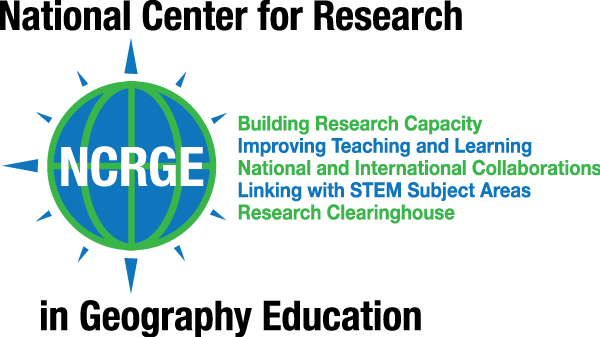About Us
NCRGE was established in November 2013 by an initial investment from the Association of American Geographers and Texas State University. Additional financial support is being provided by the Sid W. Richardson Foundation.
The establishment of NCRGE supports a key recommendation issued by National Geographic’s Geography Education Research Committee for its “RoadMap for 21st Century Geography Education” project (Bednarz, Heffron, & Huynh, 2013, 60):
The Committee recommends the creation or designation of an institution to coordinate the implementation, dissemination, and knowledge transfer of research results. The ability of the Road Map Project research agenda to inform and catalyze systemic changes in U.S.- based geography education is limited by the absence of a mechanism for coordinating research activities among scholars in geography and cognate fields. Only a large well-funded organization would have the resources necessary to plan, monitor, and execute the research required to reach the targets set forth in this report (e.g., replicating studies performed in multiple locations). Moreover, traditional publication outlets such as academic journals, while still serving an essential peer-review purpose, do not ensure that key research findings will be disseminated broadly and in a manner that informs the work of practitioners.
What is required, therefore, is an institution that: (1) regularly considers the status of research in geography education in relation to the key questions of the research agenda; (2) assesses when sufficient amounts of empirical evidence exist to shape decision making in educational practice; (3) recommends further research in areas where knowledge remains deficient; and (4) provides models of standards-based knowledge, skills, and practices. This institution would likely take the form of a research center based at a university or academic society. It should be led by a director and an advisory committee of individuals representing the organizations and disciplines involved in the research, and it should issue independent recommendations for research and action. The center also should be required to build a small number of specific international collaborations and links to pursue research projects with partners in other countries.
